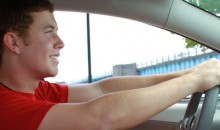According to the Centers for Disease Control and Prevention, more than 5 million children between the ages of 3 to 17 have been diagnosed with ADHD or attention deficit hyperactivity disorder. This is one of the most common mental disorders present among children and adolescents in the United States. And recent studies and research findings suggest that sleep problems could be partly blamed for the in increasing number of ADHD children in the country.
A study which analyzed over 11,000 children for a period of six years, from 6 months old through adolescence revealed that a higher incidence of behavioral and emotional issues such as hyperactivity, depression, anxiety and aggressiveness are present in children with sleeping problems and sleep disordered breathing such as breathing through the mouth, snoring and apnea a condition where a child seemingly stops breathing for a few seconds at a time. Children with sleep disorders are likely to develop symptoms similar to ADHD by about 50 to 90 percent than children without sleep-disordered breathing problems. Children around age 2 with severe breathing patterns are the most likely candidate at risk for hyperactivity.
According to Kevin Smith, a pediatric psychologist at Children’s Mercy Hospitals and Clinics in Kansas City, sleep disorders are believed to be contributing to ADHD like behavior during the day. Karen Bonuck, lead author of the study and professor of family and social medicine at the Albert Einstein College of Medicine in New York explains that brain neurons may be damaged by lack of sleep. One reason could be low level of oxygen level and high carbon dioxide level; other reasons could be interference with sleep’s restorative processes and disruption in the balance of cellular and chemical systems. Bonuck explained further that nighttime sleep patterns should be checked when a child is being suspected of having the symptoms of ADHD. Parents may want to document the problematic behavior through a video or audio tape.
Another study conducted by researchers from the University of Arizona revealed similar results children with obstructive sleep apnea or OSA showed specific symptoms of aggression and hyperactivity. They also showed lacking in social interactions and leadership skills. This was explained by Michelle Perfect, assistant professor of psychology at the University of Arizona and lead author of the study which assessed the behavior of 263 older children, some of whom have OSA and some without. Findings reaffirmed similar findings of other studies pointing to higher OSA rates in children with ADHD.
Authors of these studies urge teachers, school personnel and clinicians to include sleep problems or sleep disorders when a child manifests hyperactivity and attention problems. It could be that OSA symptoms aggravate the symptoms of ADHD.
Researchers worry that in case of a misdiagnosed ADHD, the child runs the risk of being given stimulant medications like Vyvanse and Ritalin and these stimulants can cause insomnia. If statistics released by the National Institutes of Health and the Agency for Healthcare Research and Quality are any indication, there is an increasing trend in children receiving prescribed stimulant medications. These statistics somehow support the connection and link of sleep disorders with ADHD.
http://health.usnews.com/health-news/articles/2012/06/20/does-your-child-really-have-adhd

